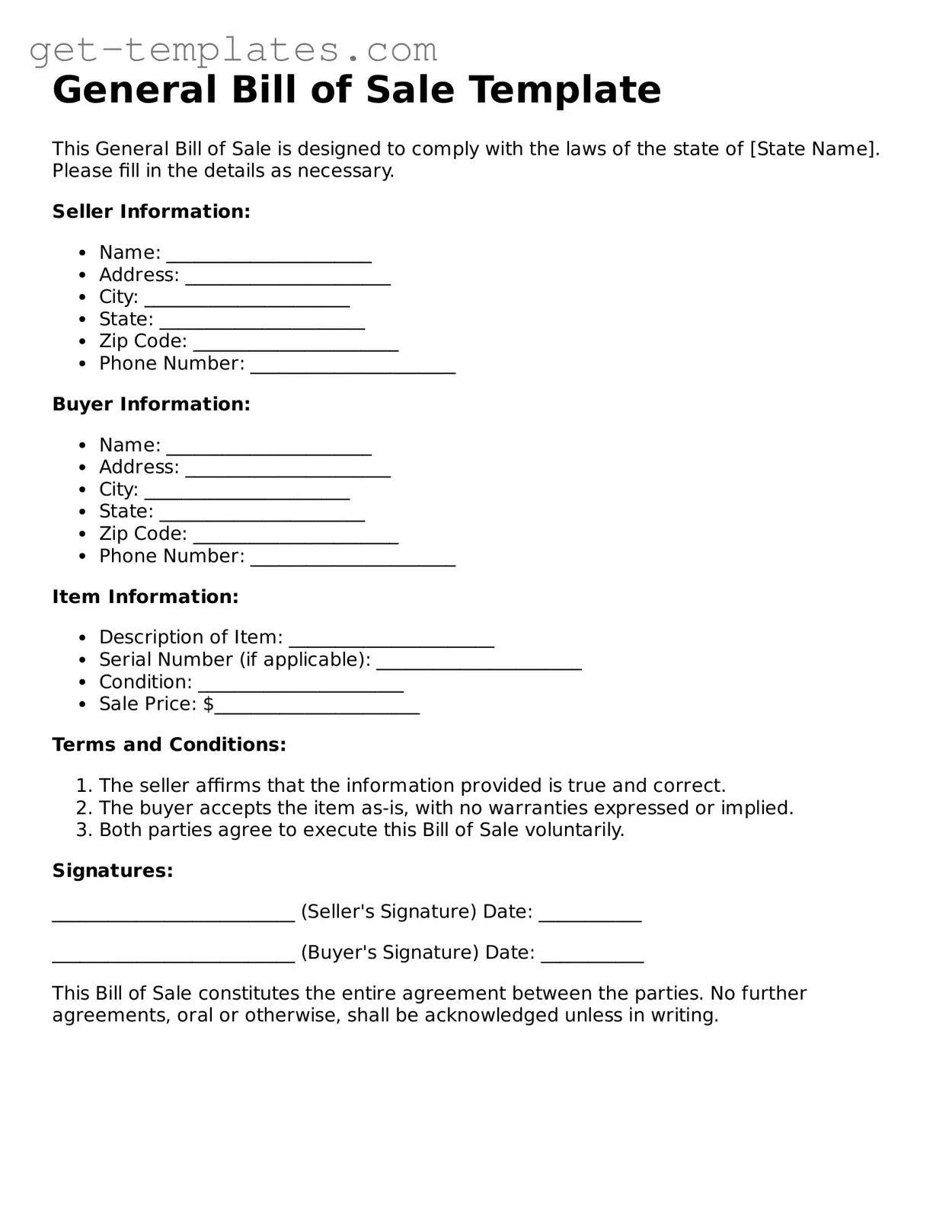What is a General Bill of Sale?
A General Bill of Sale is a legal document that records the transfer of ownership of personal property from one person to another. This document serves as proof of the transaction and outlines the details of the sale, including the items sold, the sale price, and the parties involved. It is commonly used for the sale of vehicles, equipment, and other tangible goods.
Why do I need a General Bill of Sale?
A General Bill of Sale provides several benefits. It protects both the buyer and the seller by documenting the terms of the sale. This can help prevent disputes over ownership or the condition of the item in the future. Additionally, it may be required for registering a vehicle or for tax purposes, depending on local laws.
A typical General Bill of Sale includes:
-
The names and addresses of both the buyer and the seller
-
A description of the item being sold, including any serial numbers or identifying details
-
The sale price
-
The date of the transaction
-
Any warranties or guarantees provided by the seller
Is a General Bill of Sale required by law?
While a General Bill of Sale is not always legally required, it is highly recommended. Certain transactions, especially those involving vehicles or high-value items, may necessitate a bill of sale for registration or tax purposes. Check local laws to determine if a bill of sale is mandatory for your specific situation.
Can I create my own General Bill of Sale?
Yes, you can create your own General Bill of Sale. There are many templates available online that can guide you in drafting one. However, ensure that it includes all necessary information and complies with your state’s legal requirements. It’s always a good idea to have a legal professional review it if you have any concerns.
What should I do after completing the General Bill of Sale?
After completing the General Bill of Sale, both the buyer and the seller should sign the document. It’s advisable for both parties to keep a copy for their records. If the sale involves a vehicle, the buyer may need to present the bill of sale to their local Department of Motor Vehicles (DMV) to register the vehicle.
Can a General Bill of Sale be used for any type of property?
A General Bill of Sale is typically used for personal property, such as vehicles, furniture, electronics, and equipment. However, it is not suitable for real estate transactions, which require a different type of legal document. Always ensure that the bill of sale is appropriate for the type of property being sold.

